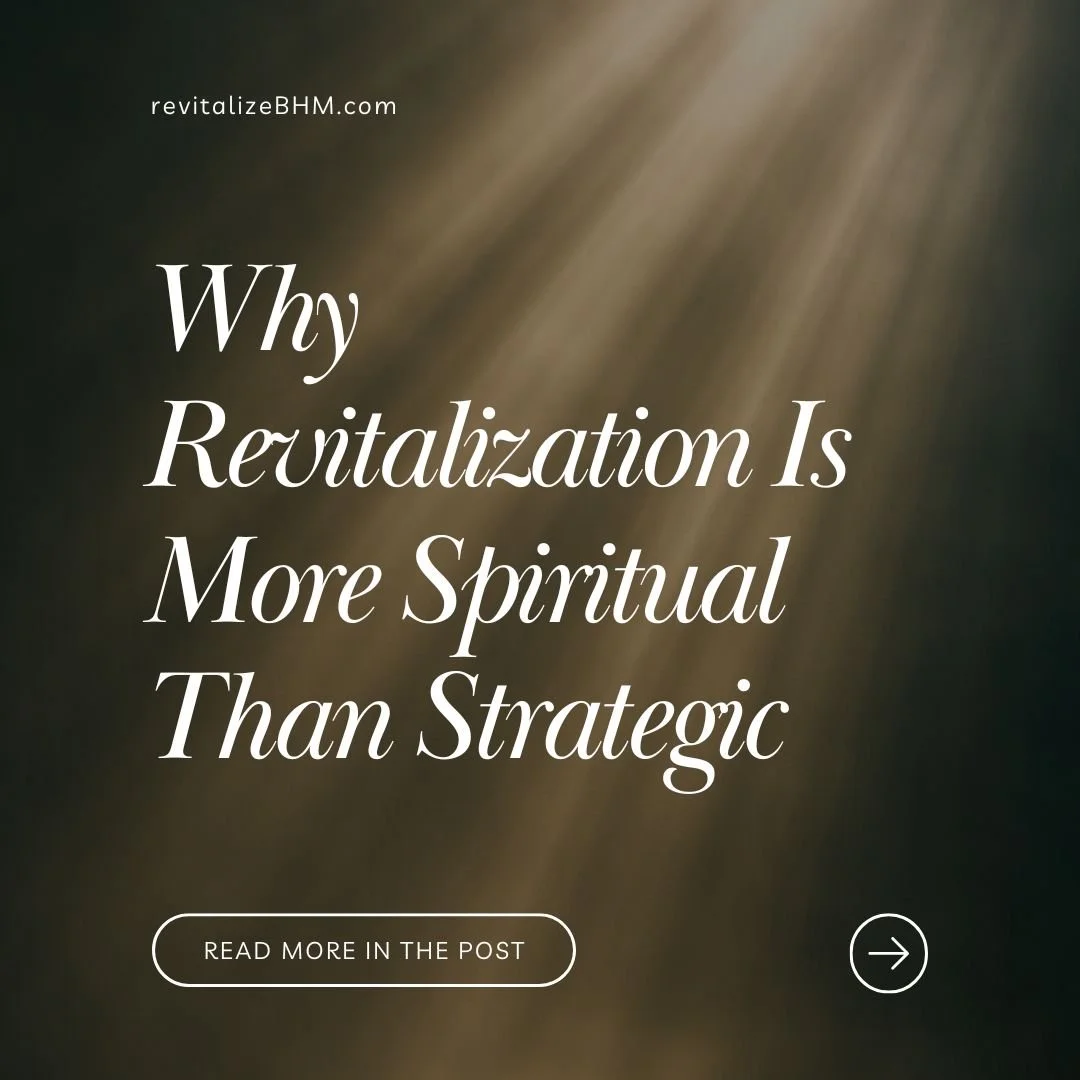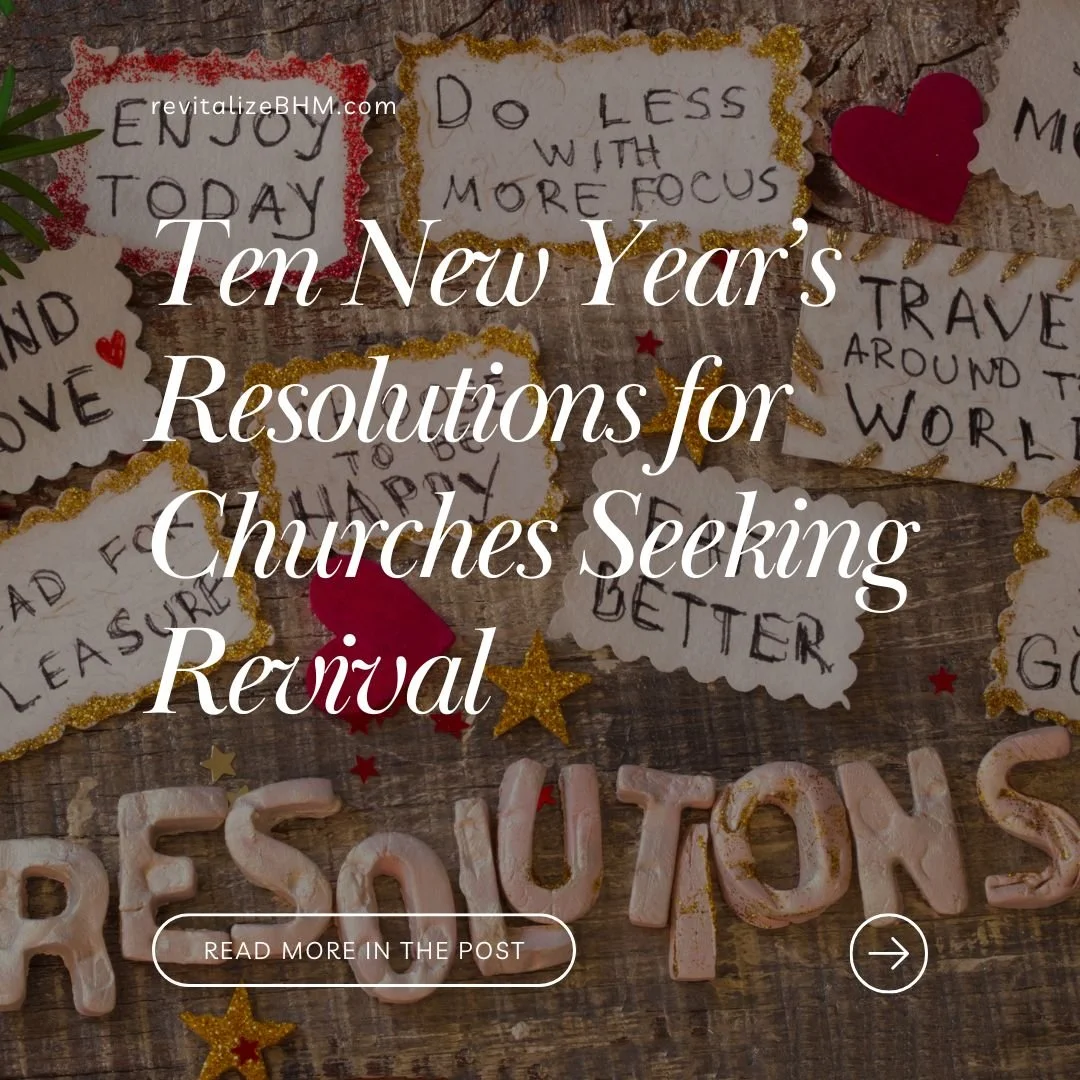How Pastors Drift from Rest Without Ever Choosing It
Pastoral exhaustion usually comes from slow drift, not deliberate neglect. As urgency replaces rest, fatigue becomes normalized. Reclaiming Sabbath requires honesty, boundaries, and a commitment to lead at the pace of Jesus rather than the pressure of ministry demands.
If You Want to Reach the Dechurched, Start by Listening, Not Inviting
In the Bible Belt, many people attended church out of habit rather than deep discipleship. When COVID removed social pressure, they quietly disconnected. Reaching the dechurched now requires listening, honesty about past failures, and rebuilding trust through presence rather than pressure.
Why Revitalization Is More Spiritual Than Strategic
Strategy supports revitalization, but it cannot replace spiritual work. Lasting renewal grows from prayer, repentance, humility, and formation. Churches are revitalized from the inside out, not by plans alone.
The Difference Between a Willing Church and a Ready Church
A willing church agrees change is needed. A ready church has accepted the cost of that change. Revitalization stalls when leaders confuse the two. Discernment, patience, and formation help churches move from willingness to readiness.
Ten Measures That Matter More Than Attendance
Healthy churches measure more than attendance. Engagement, discipleship, leadership development, prayer, generosity, and community presence reveal true health. January is the ideal time to reset what churches measure and why.
January Is the Time to Look in the Mirror
Just as individuals reflect in January, churches should pause to assess reality. Reviewing trends, listening to people, studying the community, and examining spiritual health creates clarity. Honest evaluation is the necessary starting point for faithful planning.
Ten New Year’s Resolutions for Pastors
Healthy pastoral leadership begins with spiritual grounding, wise pacing, and shared responsibility. These ten resolutions encourage pastors to lead with humility, protect their spiritual health, and trust God with the work ahead.
Ten New Year’s Resolutions for Churches Seeking Revival
Revival begins with obedience, not programming. These ten resolutions help churches align priorities around prayer, unity, discipleship, simplicity, and community engagement as they seek renewal in the new year.
Do Not Miss Christmas by Trying to Make It Impressive
The first Christmas was quiet, humble, and ordinary, yet it changed the world. Churches today risk missing the heart of the season by chasing impressiveness instead of faithfulness. Simplifying Christmas ministry can create more space for Christ, community, and rest.
Ten Creative Ways to Use Your Church Building for Ministry All Week
Church buildings are often underused while communities around them have real needs. From hosting nonprofits and co-located churches to childcare, schools, recovery groups, and community programs, churches can use their facilities for meaningful ministry all week long.
Shared Space Is Not Failure. It Is Stewardship.
Church buildings are often underused while surrounding communities change and grow. Sharing space with other churches or ministries is not a sign of decline but faithful stewardship. When churches with distinct cultures partner in the same space, they expand mission, reach people they could not reach alone, and model unity in the body of Christ.
The Ministry Myths That Keep Dying Churches From Moving Forward
Churches often cling to myths like “we just need young families” or “a new pastor will fix everything.” These beliefs derail revitalization because they shift focus away from true spiritual and cultural issues. Naming these myths is the first step toward health.
Why Revitalization Takes Longer Than You Think
Revitalization feels slow because culture changes slowly and discipleship grows at real-life speed. God shapes the pastor and the church through seasons of waiting, resistance, and small steps. Slow movement is not failure. It is the normal pace of lasting renewal.
Stop Assuming People Know the Mission. Say It Again.
Most church members forget the mission quickly unless leaders repeat it with clarity and conviction. Vision leaks. New people need direction. And a drifting church needs the mission woven into sermons, meetings, and conversations. Healthy churches repeat the mission until it becomes part of the culture.
The Silent Killers of Church Revitalization
Most revitalization efforts are not destroyed by loud conflict. They are quietly suffocated by resentment, fear, passive leadership, disengaged volunteers, and a lack of honest evaluation. Addressing these silent killers is the first step toward a healthier, united church.
Ten Things Revitalization Leaders Can Be Thankful For
Revitalization can feel exhausting, but God is still at work. This article highlights ten things pastors and revitalization leaders can be thankful for, from small wins to returning guests to renewed prayer. Gratitude gives perspective and reminds leaders that God is carrying the church forward.
How to Know If It Is Time to Replant Instead of Revitalize
Not every declining church can be revitalized. Some need a full restart. This article explains the key signs that point toward replanting and emphasizes that a replant is not a failure. It is a faithful act of stewardship that preserves legacy and gives the church a future.
When the Pastor Wants Change More Than the People Do
Many pastors want change faster than their church is ready to move, and that tension creates frustration. Scripture shows that this struggle is not new. Healthy revitalization requires patience, teaching, trust building, and steady formation. Progress comes when leaders walk with their people, not ahead of them.
10 Small Victories to Celebrate When Leading Revitalization
Church revitalization rarely happens overnight. It shows up in small, holy moments — laughter in meetings, genuine prayer, returning guests, and members who serve with joy. This article lists ten subtle victories that pastors and leaders should notice and celebrate as proof that renewal is underway.
Revitalization Isn’t Rebranding: Why Paint and New Logos Don’t Fix Dying Cultures
Many churches mistake rebranding for revitalization. Fresh paint, new logos, and modern marketing can make things look better, but they cannot heal what is broken. True revitalization begins with repentance, grows through relationship, and leads to renewal. Change the culture before you change the carpet.





















